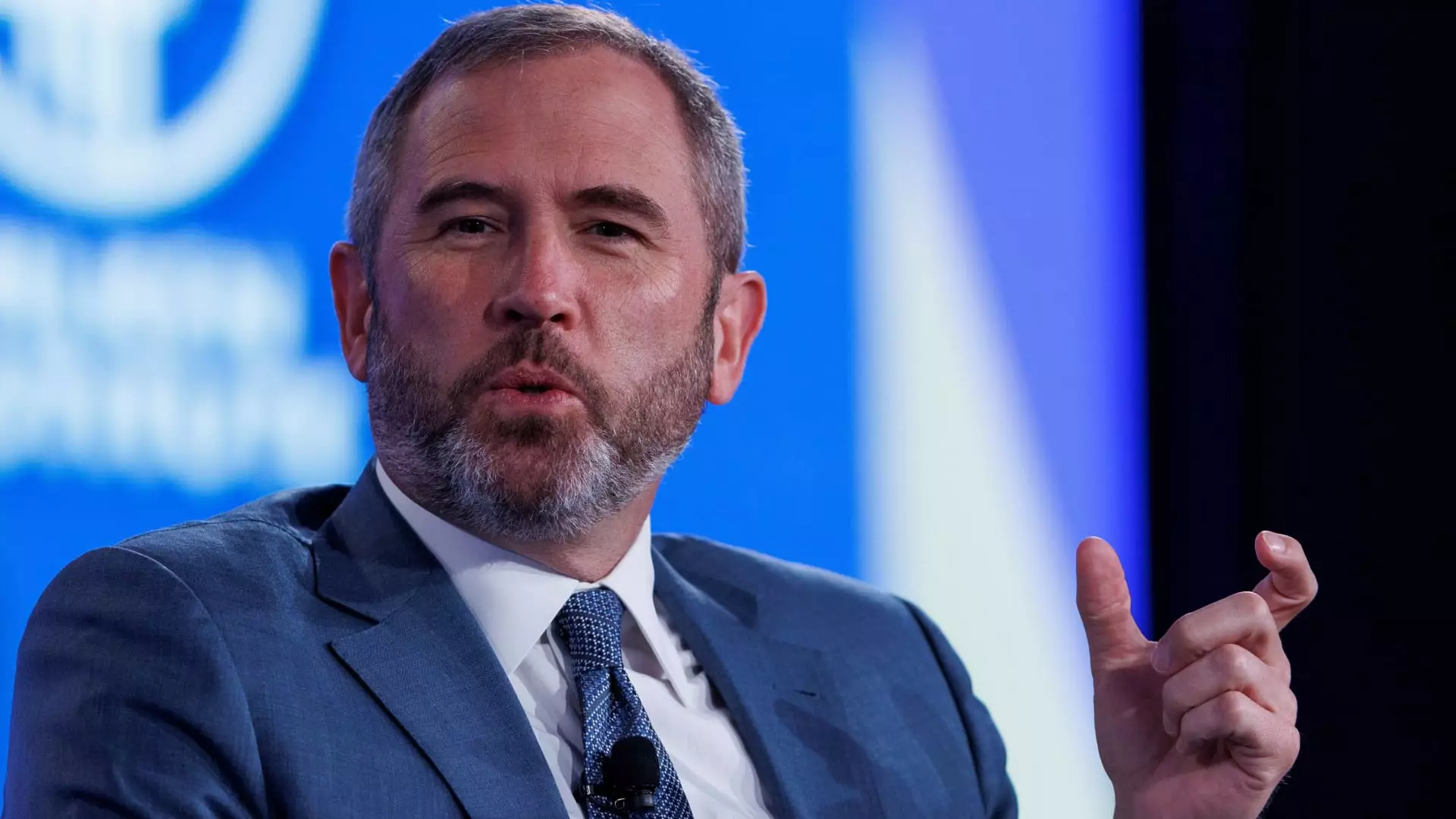In an unexpected twist within the ongoing saga of cryptocurrency regulation, the U.S. Securities and Exchange Commission (SEC) has seemingly retreated from its staunch antagonism towards the crypto industry. Dominated by a neoliberal mindset that has been skeptical of rapid technological advancements, the SEC’s persistent legal offensive culminated this week when it dropped its long-standing lawsuit against Ripple Labs, an infrastructure giant that played a pivotal role in the inception of the digital asset XRP. Initially filed in 2020, the case sought to brand XRP as an unregistered security while implicating Ripple in a $1.3 billion fundraising scheme. This aggression, once an unassailable pillar of the SEC’s regulatory arsenal, crumbled in the face of Ripple’s resilient legal defenses.
The implications of this decision are monumental, not just for Ripple but for the entire crypto ecosystem, as it signifies a decisive shift in the regulatory landscape. For years, the crypto industry faced a formidable adversary in the SEC under former Chair Gary Gensler, whose approach was perceived as hostile rather than constructive. The premature fall of this lawsuit not only empowers Ripple but suggests that the SEC’s heavy-handed measures may have reached an irreparable threshold.
A Tipping Point for Digital Assets
Ripple’s courtroom victory has fueled newfound optimism within the cryptocurrency sector. Its Chief Legal Officer, Stuart Alderoty, highlighted how the SEC’s change in direction served as a ricochet effect, leading to the dismissal of lawsuits against key players in the industry, including Coinbase and Kraken. With crypto giants now feeling emboldened, XRP’s market reaction post-announcement – an 11% leap in value – underscores a reinvigorated market sentiment and a striking rebuke against regulatory overreach.
Additionally, the ruling has paved the way for a potential realignment of political stakeholders keen on crafting a pro-crypto narrative. Surprisingly, this has also coincided with Donald Trump’s re-emergence in the political landscape. The former president, once a vocal opponent of cryptocurrencies, has transformed his stance in light of the ruling, positioning himself as a proponent of transforming the U.S. into a leading crypto hub. This surprising oscillation is emblematic of the political maneuvering that often shapes economic Frontlines.
The Role of Advocacy in Shaping Regulation
What sets the Ripple case apart is the substantial legal and financial investment it required from Ripple to combat the SEC. Spending upwards of $150 million, Ripple exemplified the lengths to which companies must go to defend not only their enterprise but the broader ethos of entrepreneurship within the financial landscape. The fight against tenacious oversight was framed not merely as a corporate battle but as a broader struggle for the soul of innovation against an often-relentless regulatory apparatchik.
Further, Ripple’s triumph serves as an embodiment of the increased advocacy for clearer, more transparent crypto regulations. Following the much-anticipated judgment, Hester Peirce’s Crypto Task Force at the SEC represents a pivot towards engagement rather than punitive actions, which aligns closely with the needs of an evolving sector eager for guidance rather than restraint. Peirce’s initiative is a beacon of hope for an industry that has long felt maligned and misunderstood.
The Cautionary Tale of Overregulation
While the SEC’s recent concessions appear to indicate a newfound approach to the crypto realm, they also highlight a critical lesson about overregulation. Throughout its aggressive pursuit of Ripple and others, the SEC may have inadvertently drawn more attention to cryptocurrencies, effectively galvanizing a community that values innovation and decentralized approaches. Every action has consequent reactions, and while the regulators sought to impose stringent constraints, they cultivated a resilient and united front that will demand a voice in the legislative narrative moving forward.
Critically, the atmosphere of legal uncertainty fostered by the SEC left many established players in the crypto market contemplating their next moves. This uncertainty has not only stymied growth but has also encouraged rampant speculation, infighting, and mistrust among market participants. The ripple effects (no pun intended) of this tension have challenged the principles of fairness and competition that any economic model ought to celebrate.
Future Prospects: A Cautiously Optimistic Outlook
The SEC’s abrupt shift indicates a potential thaw in hostilities, hinting at a future where regulatory frameworks can coexist with innovative technologies. Yet, the crypto industry must remain vigilant and proactive. As Ripple prepares to ride the momentum of its legal victory, stakeholders need to seize the moment to engage more persuasively with regulators to construct equitable frameworks instead of falling prey to ambiguity again.
The dialogue between the crypto industry and government bodies will undoubtedly determine the tempo of future innovations and the U.S.’s position in the global digital assets race. As we transition from a phase of volition-based skepticism to one of cooperative governance, the cryptocurrency sector stands at a crossroads, poised for exploration and new frontiers of possibility.

